Among the most common materials from which a spoon can be made, there are wood, silver, nickel silver, aluminum, stainless steel, ceramics, cupronickel, and this is not a complete list. Each material has its own advantages and disadvantages. When choosing cutlery, you need to rely on them so that the spoons last a long time and delight the hostess not only with their appearance, but also with their functionality.
Materials from which spoons are made
The content of the article
-
Materials from which spoons are made
- Wood
- Aluminum
- Silver
- Cupronickel
- Nickel silver
- Stainless steel
- Plastic
- So what should you choose?
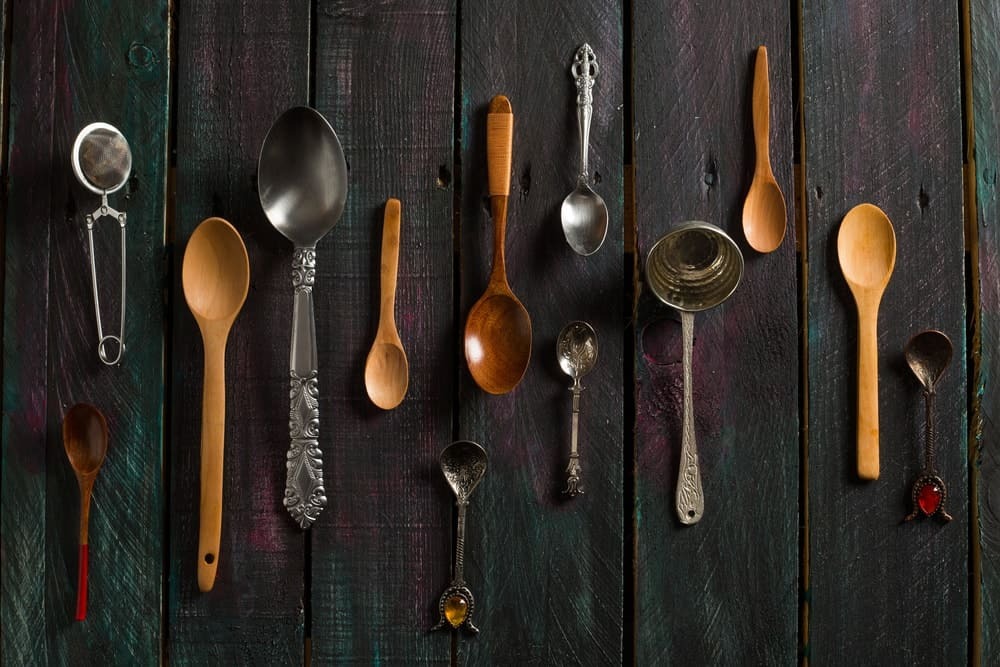
@ homestratosphere.com
Each material that can be used for a spoon is special in its own way. It can be made from:
Wood
In the kitchen, they are quite rare and in most cases are used as decoration of the room. Some housewives prefer wooden utensils for mixing dishes in non-stick cookware. However, there are spoons that are made exclusively from wood, such as honey and for salads. When choosing just such a product, it should be remembered that wood is a capricious material and it has a very short service life, so it will have to be changed much more often than, say, a plastic spoon. Of the advantages - of course, environmental friendliness.

@ shopsirmadam.com
Aluminum
Previously, aluminum was very popular, but now it is already a relic of the past. Aluminum spoons are not very attractive, bend, lose their shape, tarnish and quickly become covered with dark spots. Perhaps due to their very low cost, such spoons continue their life somewhere in government institutions (canteens), but you rarely find them in personal use. The exception is inheritance from grandmother. Of the advantages, only light weight can be distinguished, which, for example, is very convenient for a baby who is just learning to eat on his own.
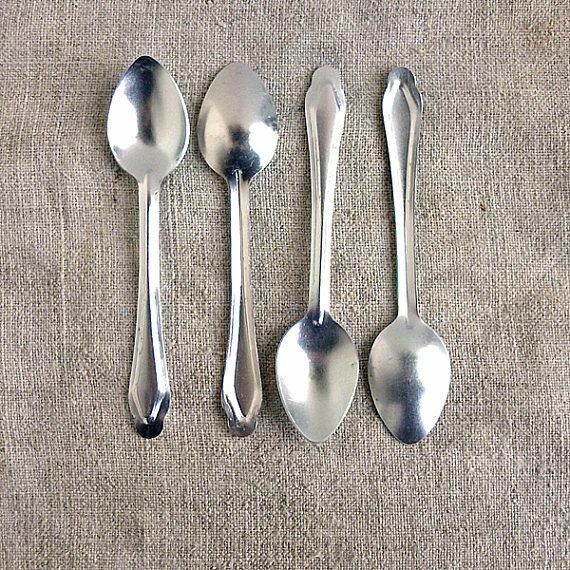
@ pinterest.ca
Silver
A noble metal, which in the Middle Ages was available only to the nobility. Nowadays, silver spoons are very rare, as they are premium products. Despite the high cost, it cannot be said that the quality of silver spoons is up to par. Metal is very demanding to care for, has a tendency to tarnish, and is susceptible to mechanical damage. The advantage of silver is that if properly cared for and stored, appliances can be inherited even by your great-great-grandchildren, as it is one of the most durable materials.
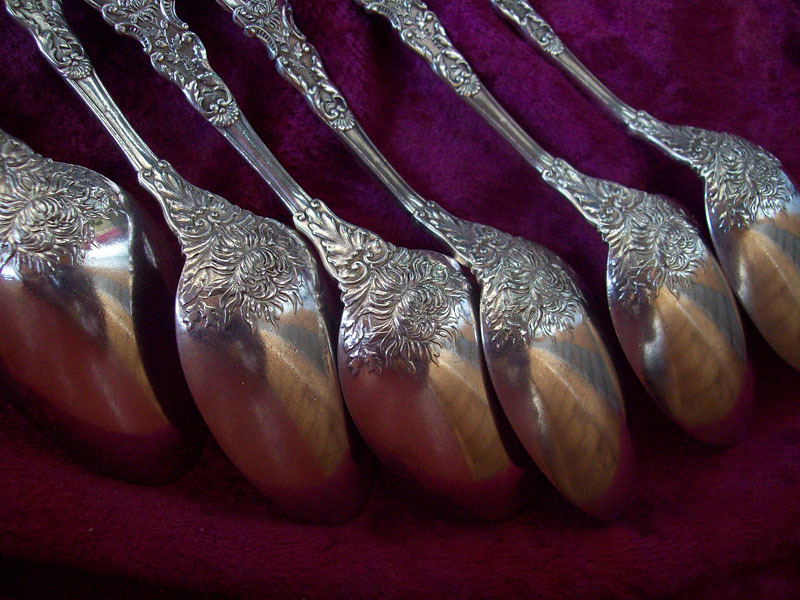
@ 925.nmprof.ru
Cupronickel
Silver-white copper-nickel alloy. Back in the days of the USSR, having a table set made of this material was considered a sign of solvency. In appearance it is very reminiscent of silver, which is not surprising, because most items from cupronickel are silver-plated. However, this alloy is superior in quality to silver - cupronickel spoons are resistant to bending and deformation, and therefore are more durable and retain their original shape for a longer period. Cupronickel cutlery ceased to be produced in the 50s of the last century, it was adequately replaced by nickel silver.
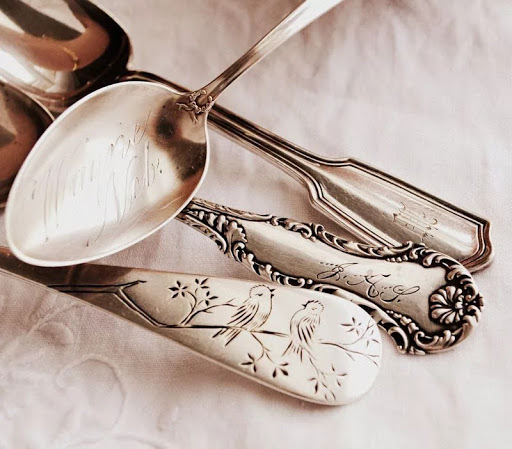
@ berkem.ru
Nickel silver
Nickel silver (literally translated from German "new silver") is an alloy of copper, nickel and zinc. In appearance it is very similar to table silver, which is its main advantage over other alloys. Does not corrode, does not bend, rather durable. The price of spoons made of nickel silver is much lower than that of silver or cupronickel, and they practically do not differ in quality. Products made of nickel silver must be subjected to silvering, otherwise the food tastes like metal.
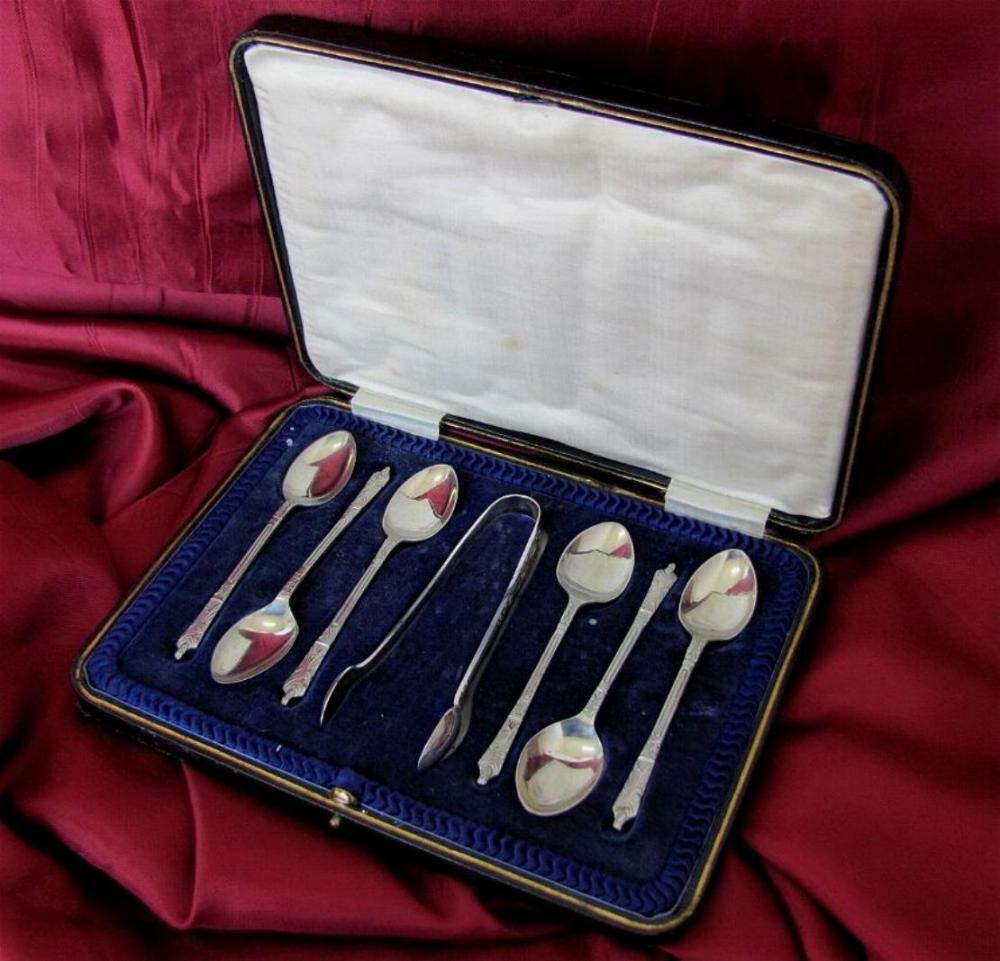
@ invaluable.com
Stainless steel
The most widespread metal from which spoons can now be made. The most commonly used stainless steel grade 18/10, consisting of 10% nickel and 18% chromium. Nickel protects against food acids and gives the spoon a shine, while chrome provides strength and anti-corrosion properties to the metal. Stainless steel spoons are not prone to darkening, dullness, breakage. They look very attractive and their price is not high.
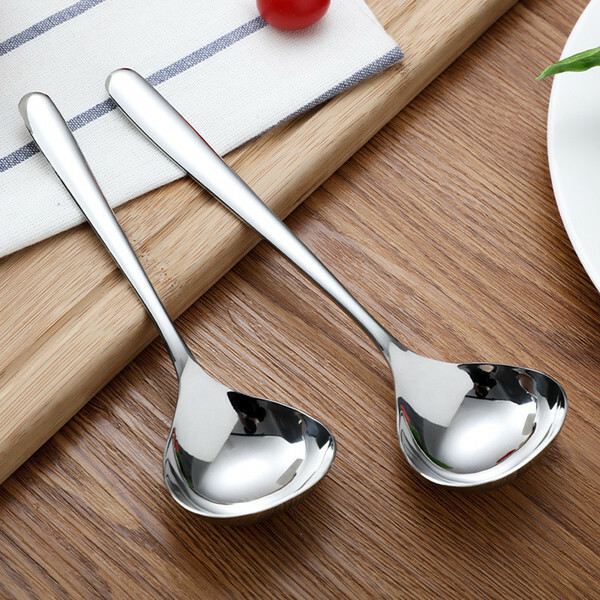
@ DHgate.com
Plastic
Plastic spoons are most often used outside the home. They have become simply irreplaceable in hiking, outdoor recreation, children's picnic. The advantage of this material is its price. Such products cost just a penny, so after using them it is not at all a pity to throw them away. Since plastic is not the best material for permanent use, spoons from it are considered disposable. However, there are also such greedy people that they use a plastic device constantly - in order to save money.
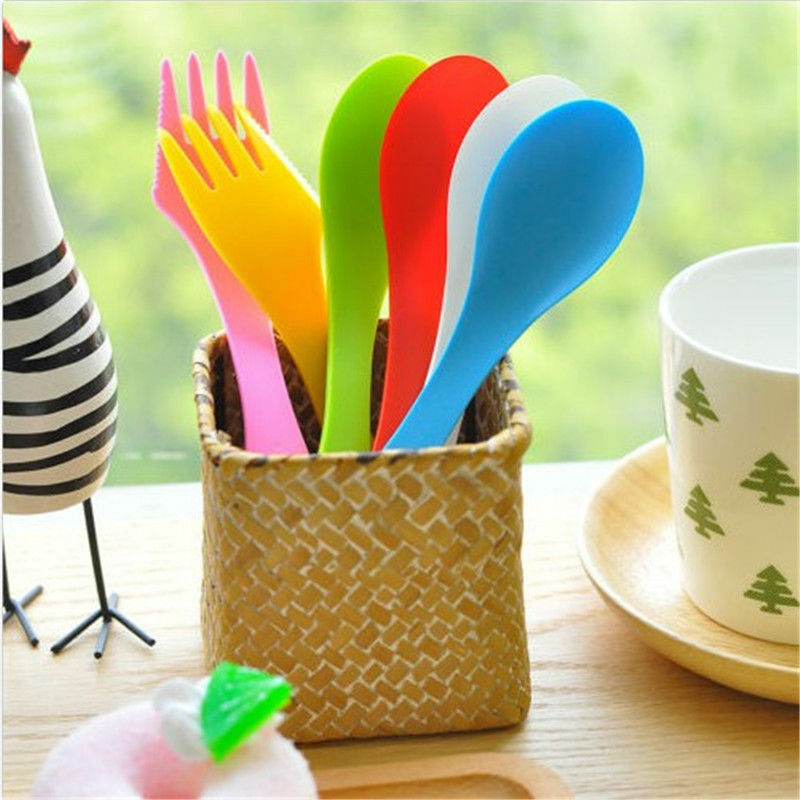
@ ali3.ru
So what should you choose?
The answer is quite simple and depends on where you use the spoons:
- For daily use with the family - stainless steel. It is durable enough, does not require special care and looks attractive.
- For hiking, picnics - certainly plastic. You do not have to carry extra pounds of metal on yourself, and the spoons can then be easily disposed of and not bother washing.
- If you often receive guests and you need a premium dining set, then this is silver or nickel silver. Guests will definitely pay attention to such attractive appliances. But do not forget that these metals are quite capricious, so they need to be properly cared for and stored.

@ etsy.com
Subscribe to our Social Networks


